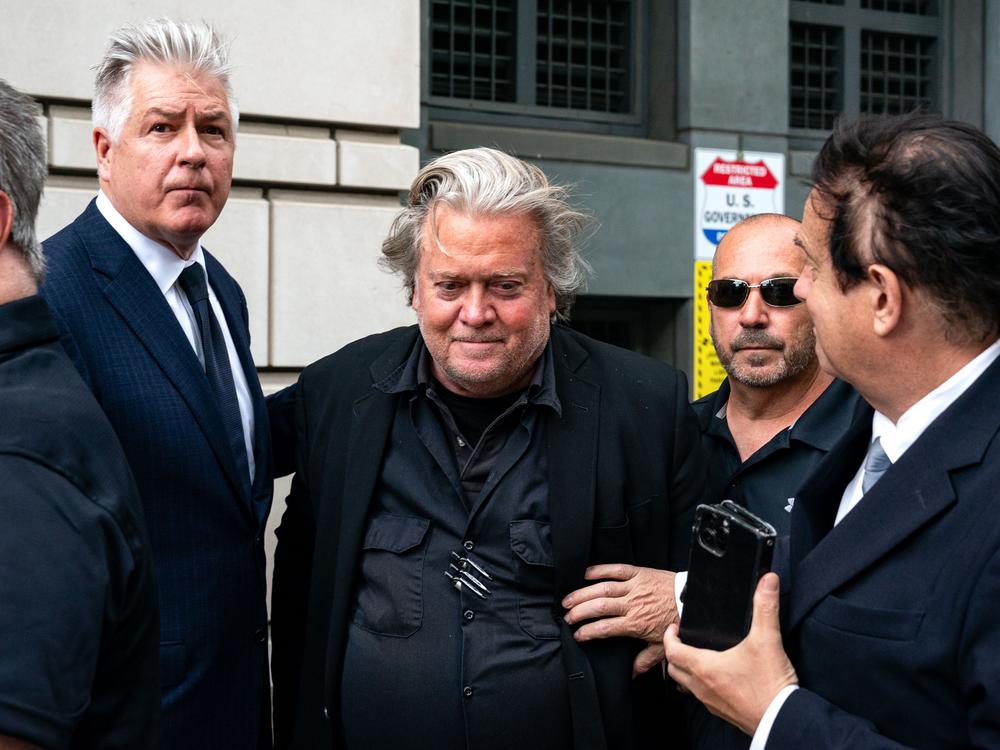Section Branding
Header Content
Supreme Court denies Steve Bannon's plea to stay free while he appeals
Primary Content
The U.S. Supreme Court rejected an appeal by Steve Bannon, the right-wing podcaster and former Trump White House aide, to remain free while his case goes through the appeals process.
"The application for release pending appeal presented to The Chief Justice and by him referred to the Court is denied," the court said in a one-sentence order.
Bannon now has a deadline to report to a federal prison in Connecticut July 1. He must serve time after refusing to comply with a congressional investigation into the siege on the U.S. Capitol.
A federal jury in Washington, D.C., convicted Bannon two years ago on two criminal contempt charges, for defying subpoenas for documents and testimony from the House Select Committee investigating the events of Jan. 6, 2021.
Bannon successfully delayed his four-month prison sentence for years, as appeals wound through the courts. But his luck ran out in May, when a federal appeals court unanimously rejected his claims.
Bannon is the second Trump-era official ordered to serve prison time for flouting demands from Congress. Trump trade adviser Peter Navarro reported to a prison in Florida in March, after Chief Justice John Roberts refused to intervene in the case.
Both men cast their disputes with Congress as challenges to the Constitution’s separation of powers, but judges found no evidence that Trump had formally asserted executive privilege to block their cooperation with lawmakers.
Bannon had tried to argue at his trial that he had relied on advice from his lawyer, and therefore lacked the intent to "willfully" violate the contempt law. A judge foreclosed that defense based on court precedent, but raised significant questions about it — questions that Bannon cited in a June 21 petition to the Supreme Court.
"Mr. Bannon relied in good faith on his attorney’s advice not to respond to a subpoena issued by a House Select Committee until executive privilege issues were resolved—as they had been on three prior occasions when Mr. Bannon had agreed to testify after President Trump’s counsel had asserted executive privilege," his lawyers wrote.
Bannon, who has been a vocal supporter of Trump’s bid to regain the White House later this year, may now be incarcerated on those misdemeanor charges through the election in November.
He’s separately fighting fraud, money laundering and conspiracy charges in New York state court over an alleged scheme to defraud donors to a charity that aimed to build a wall along the southern border. That case is scheduled for trial later this year.
Trump granted Bannon a full pardon from federal charges related to We Build the Wall in January 2021, shortly before he left the White House. Presidents lack power to issue pardons for state crimes.

